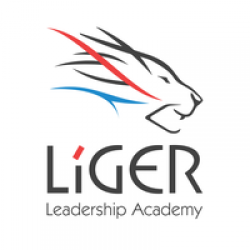Huykea’s 19-20 Impact Statement
Since I was young, I never realized how many Khmer poems there are, until the moment I was in a project to create an app about poetry in Cambodia. Throughout the research, there are more than 55 different poems and some of them were even created before the Angkor period. Even though Cambodia had suffered through wars and genocide, our ancestors still kept all of the poems safely. They wanted their next generation to learn and continue to keep it for the next generations. But why don’t most of the new generations know about all of those poems and never realize how important it is to represent our Khmer culture. Nowadays some people only know the most common 4 to 5 poems. How about the other poems? Genuinely, I want people, especially students, to learn and know more about all of the poems. Poetry is one of the leftover mementos from our ancestors and if we do not do something to preserve it, later on, it will go forever. This led me to become a change agent by helping to create an app about all of the poetry in Cambodia.
Cambodia has expanded a unique Khmer culture and belief system and poetry is one part of them. But why is poetry really important to represent Khmer culture? To show Khmer culture, many authors had made poems to express the lifestyle of Cambodian people such as “Tom Teav” which later on became a story. Some poems were created to narrate important events. But most importantly, poems were also created to teach people. For example, “Chbab Bros” and “Chbab Srey” are the poems that were created as the guidelines for men’s and women’s behavior.
One day, I got chosen to join an exploration to help create an app called Naeng-Norng. Since poetry is one of the leftover mementos from our ancestors, the main mission of this project is to raise awareness and to preserve Khmer Culture through poetry. Naeng-Norng is a poetry app that was created to help people, especially students to gain more knowledge about poetry. As we are the next generation, we can give more value to it by writing, learning, and sharing more about it.
In this project, we divided into different teams and I got placed on the research team. We were trying to research every piece of information about each poem. The moment when I started working on my work, I started to realize how many different poems there are. My teammates and I were shocked because we all never knew that before. We only knew the most common 4 or 5. And we really want to know more. So we tried to research all of the details and facts of each poem. We looked for all of that information like origin, how many words are in one line, how many lines in one sentence, poem structure, and rhyme structure, rhyme. We also found out that the structure of some poems are more interesting than what we know nowadays. We tried to get as much information as we could, but it was difficult since some poems were created before the Angkor period so the information is still unclear or undefined. Overall, we did really well on our tasks to help find information and also help other teams as well.
But my journey to change my own country didn’t end there.
Creating our own poems is a way to learn it but it is not easy to create one. In the Khmer class, the teacher wanted everyone to create 2 or 3 poems individually. That was an amazing challenge for everyone to do that. We got to know how to write poems and also how to sing it for the poem that we never heard of before. In addition, we tried to collect all of those poems and made it into a book, and added some information on how rhyming works in each poem so people can use it to learn as well. And hopefully, we can sell those books to the public, so people can learn and read it at the same time. Even though we still haven’t published the book and the app yet, nevertheless we are trying our best as we can to publish it.
Also, for this short period of lockdown, I can improve myself to be a self-learner. Moreover, it gave me the ability to view Cambodia and the world on how people had dealt with Covid-19. Because of that, it motivates me more to be a change agent. If the world can solve and deal with Covid-19, why can’t we be a change agent to change those problems that we face nowadays? In fact, while being a self-learner, it also encourages me to take more actions in the future such as help create more poems and participate in the Khmer literature event to share my knowledge throughout my experience with these two projects.
Poetry is really important to our culture and had existed in our nation even before the Angkor Wat period. We all should appreciate what we have today from our ancestors. As poetry was one of the leftover mementos from our ancestors, we, the next generation, need to raise awareness and preserve it for the other generation. Students need to learn and share it. As a change agent, we never know what will happen unless we have tried it. It is all right to feel defeated or get success but we never surrender. “Be the change you want to see in your country”.

